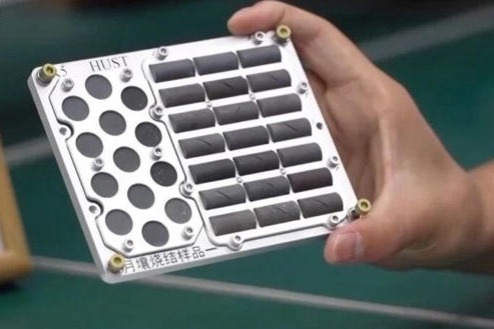Parents should give youngsters greater say in their extra-curricular activities

A certain amount of drama seems to have attached itself to the Hong Kong local drama competition that has recently finished. Every year around July or even earlier, several schools - both primary and secondary - agree to take part. Many groups, if not all of them, put a great deal of effort into it and, sometimes, the final results (as recently happened in the Ninth English Radio Drama Competition this year) are very impressive.
However, the minute local institutions show a willingness to take children through perhaps their first dramatic journey, the teachers and instructors start stressing out. As often happens, Hong Kong has some brilliant ideas on encouraging youngsters to participate in extra-curricular activities. Unfortunately, if students don't excel in everything they do - or at the very least gain marks and certificates - the activity loses its appeal. A recent article by Anisha Bhaduri published in China Daily noted: "Hong Kong's society is essentially utilitarian. Its education system is perceived as elitist and its culture of extra-curricular activities competitive - defeating their very premise." I couldn't agree more.

Almost all extracurricular activities organized by our schools are competitive in nature, be they debates, quizzes, exams, even artistic and cultural activities. It's great that we hold second place in the world for reading and math, according to last year's Organization for Economic Cooperation and Development ratings, and a little healthy competition can keep students focused and engaged. Neither is it harmful to have a reward or recognition for something students are passionate about, like sports. However, there is no need to turn every activity into a contest. It's fine for children to enjoy activities that help them cope with bigger challenges later in life and teach team work. There might not be an immediate reward but the benefit of such collaborative exercises is self-evident.
Extra-curricular activities should be chosen based on what students enjoy, what they are good at and how they want to challenge themselves. Too often I see students joining drama competition and festivals because the parents don't want to miss out on an additional certificate; it often ends with students not wanting to be on stage but joining the activity regardless because of pressure from parents. Performing arts in general (and drama in particular) shouldn't feel like something to be ticked off a to-do list, and parents shouldn't feel their offspring are behind others if they decide to take part in fewer activities, particularly when such activities do not match their character traits.
Furthermore, there is a conundrum with the words drama and competition; performing on stage provides a high dose of adrenaline and excitement, and the experience and enjoyment of a production go far beyond the validation of a piece of paper. A dramatic performance is a journey, not a destination. Its focus is on confidence-developing, trust-building and mutual support. It has very little to do with competition, but most institutions and people in Hong Kong don't seem to perceive it that way.
Children these days are overwhelmed with activities, to the point of being kicked out of the house even when they are sick. After all, a cough never killed anyone, parents have already paid for the numerous after-school engagements and children have to be proactive and learn something.
As Bhaduri has asked herself before: When did this start? Is it in the parents' attitude, or in the schools' expectations that are turning our children grey? If an extra-curricular activity is seen as a must and as a chore, how can children enjoy and put passion into it, if all it comes down to is competing in something that must be won at all cost?
With students locked into such packed schedules, time is another issue, as each activity must be rushed to fit in with other commitments, compromising the enjoyment of the activity per se. As we are encouraging the youngsters to be passionate about hobbies, sports and performing arts, we create an unnecessary sea of pressure that simply adds to the one already existing in academic life. What was supposed to be a pleasant and enriching experience for students becomes just another assignment that must be completed. Could this be another contributing factor to Hong Kong's miserable position of 75th place in the global happiness rankings?
Very often, as soon as the certificate is achieved, the hobby is dropped; children feel that they have done what they had to do, and there is now no point pursuing it. For example, most of the students I am close to know how to play the piano, yet most of them stop practicing as they see no point pursuing it once they have proved they can do it.
It is time for Hong Kong to realize that a busy activity schedule doesn't necessarily mean a productive one. Perhaps we should let our children dictate their agenda that matches their dreams and aspirations, and realistic vis--vis their individual potential. Their future happiness and career success are not likely to be decided by the number of extra-curricular activity diplomas and certificates. Both students and parents should learn to smell the flowers along the way.
(HK Edition 06/05/2017 page9)
Today's Top News
- Japan's PM seen as playing to right wing
- Mainland increases entry points for Taiwan compatriots
- China notifies Japan of import ban on aquatic products
- Envoy: Japan not qualified to bid for UN seat
- Deforestation is climate action's blind spot
- Japan unqualified for UN Security Council: Chinese envoy






























